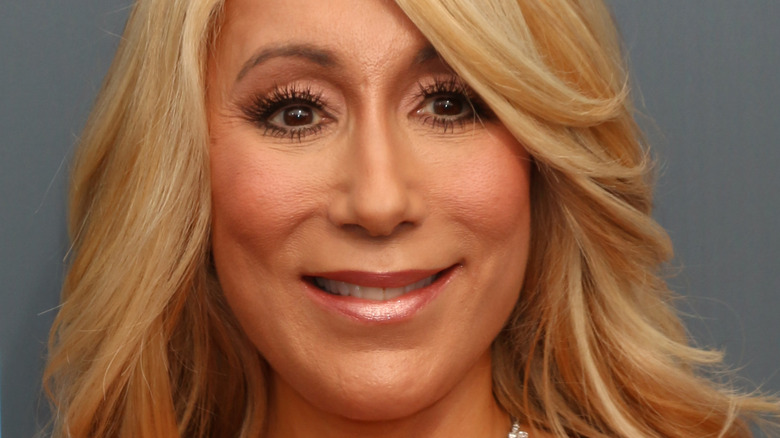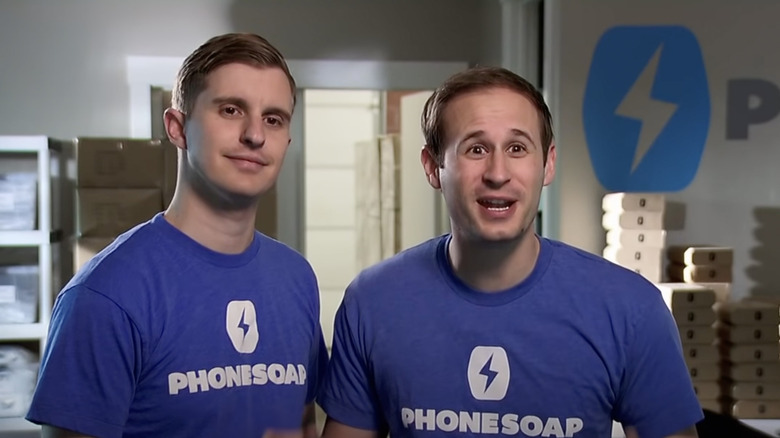Whatever Happened To PhoneSoap After Shark Tank?
Products come and go. That's the nature of a successful reality show like "Shark Tank." The ABC series, where budding entrepreneurs ask investors to finance their products, had made almost 500 deals of everyday products in its first 10 seasons, per The Hustle. One product the show's fans are curious about is the phone disinfectant product PhoneSoap.
Cousins Wesley LaPorte and Dan Barnes appeared on the show in Season 6, Episode 16, back in January 2015, asking the Sharks to invest $300,000 for a 7.5% share of their company. Inspired by a report that claimed your cellphone is 18 times dirtier than a public toilet, they created a "tanning bed for [your] phone," as Robert Herjavec called it, that would sanitize your device using ultraviolet light. Herjavec and Barbara Corcoran opted out almost immediately. Mark Cuban balked at the cousins' response that consumers shouldn't use disposable alcohol wipes because they could harm your phone, but he changed his tune when he learned they were tapping into the hospital market. Cuban offered the money for a 20% share if they sell it commercially and reduce the sanitation time to one minute instead of five. Fortunately, Lori Greiner swooped in with a $300,000 for a 15% ask, so she could sell the units on QVC. When asked to meet them in the middle, Greiner offered 10% if they say yes right away. They did.
But that was in 2015, and a lot has changed since then. Let's see how PhoneSoap is doing.
PhoneSoap has expanded their product line
A year after that 2015 episode, "Shark Tank" did a follow-up segment on PhoneSoap in their Season 7 episode airing in May 2016. Lori Greiner's offer to "sell hundreds of thousands of dollars" in a snap was low-balling it. "In the five months before 'Shark Tank,' we did $537,000 dollars in sales," the cousins explained on the episode. "It's been just over a year and we've done $4.9 million." They expanded their Provo, Utah-based business, growing to 12 employees, and added a version of their product for tablets too.
Now, in 2022, the PhoneSoap website claims its products can be found in various places. "You'll find PhoneSoap solutions fighting the good fight in homes, schools, hospitals, gyms, restaurants, and countless other germ hiding places," the site reads. Their business now has 90 employees, according to ZoomInfo, and brings in $24 million in revenue. They've improved their original cellphone sanitizer with PhoneSoap 3, available in lots of colors including periwinkle, orchid, aqua, and gold. They've also grown with the market and added more products, including the PhoneSoap Pro, a larger phone sanitizer that is faster (also in pretty colors), and HomeSoap, which can sanitize lots of things, including tablets, headphones, remote controls, and more.
The company also has an air purifier called AirSoap, and versions of PhoneSoap that are wireless and travel-friendly. Plus, lots of accessories that make charging and disinfecting your phone easier and faster. So as it seems, Wesley LaPorte and Dan Barnes seem to be doing just fine.

